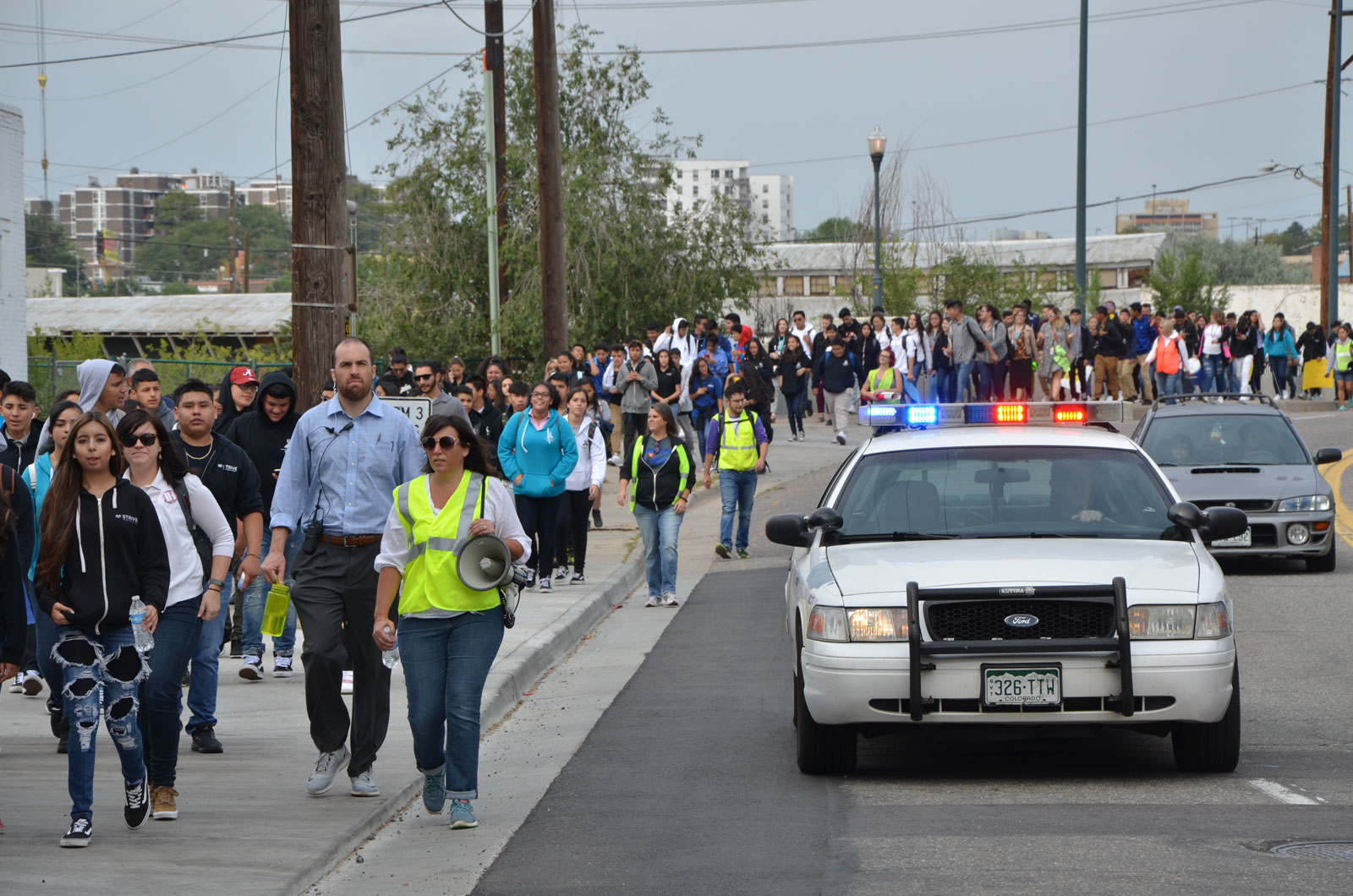The Local newsletter is your free, daily guide to life in Colorado. For locals, by locals.
On Tuesday morning, Ana Rodriguez, a social worker and community organizer with the Colorado People’s Alliance, was working with students at Emily Griffith High School in downtown Denver when she heard that the Trump administration had officially decided to end the Deferred Action for Childhood Arrivals (DACA) program. Rodriguez, 27, immigrated to the United States from Mexico at the age of 4, grew up in Houston, and has bachelor’s and master’s degrees from the University of Houston. She is also a DACA recipient; her permit will expire in 18 months.
“I didn’t care to sit down and watch the announcement,” Rodriguez said. “I knew it was coming. I don’t need to hear the anti-immigrant sentiment coming from this administration while they’re ending a program that has given me all the opportunities that have allowed me to succeed and be where I am today.”

In recent months, the future of the DACA program has been the topic of much speculation and anxiety. The president has flip-flopped and reportedly agonized over the program’s fate, saying as recently as last Friday that “we love the Dreamers…we think the Dreamers are terrific.” DACA, which started in 2012 under the Obama administration, allows certain individuals who entered the country illegally as minors (less than 16 years of age) to apply for a two-year deferral of deportation as well as a work permit. In announcing the decision to end DACA, Attorney General Jeff Sessions framed it as necessary and lawful in light of a challenge to the law by 10 Republican attorneys general. Sessions also argued that the manner in which the program is being phased out—while new applicants to the program won’t be accepted, current permits won’t be revoked and recipients whose permits expire before March 5, 2018 will still be eligible for renewal (which costs $495) as long as applications are submitted by October 5, 2017—gives Congress six months to come up with a legislative solution for DACA recipients. The president echoed that line of thinking in a statement, saying, “It is now time for Congress to act!”
The battle to protect Colorado’s estimated 17,000 “Dreamers”—people who were granted a two-year stay under DACA—has already started. Here’s what you need to know about DACA and Dreamers in the Centennial State.
Protests Started Immediately
Reaction to the news was swift in furious across the state. In Denver, at schools like Emily Griffith, hundreds of local students walked out of class shortly after the announcement on Tuesday and marched to the Auraria Campus for a rally to protest the administration’s decision. Additional events occurred throughout the state on Tuesday.
Ending DACA Could Hurt the Colorado Economy
An analysis published earlier this summer by the Center for American Progress (CAP), a liberal think tank, estimated that ending DACA would remove 685,000 workers from the U.S. workforce and would cost the economy $460.3 billion in lost GDP over the next decade. In Colorado, the CAP report predicts GDP losses of approximately $857 million.
Colorado’s Lawmakers Are (Mostly) Lining Up to Support Dreamers
The state’s lawmakers have largely come out against Trump’s decision. Gov. John Hickenlooper (D), Sen. Michael Bennet (D), Rep. Diane DeGette (D), Rep. Jared Polis (D), and Rep. Ed Perlmutter (D) have all issued statements strongly condemning the administration’s decision. Meanwhile, several of the state’s Republican representatives are taking steps to ensure that legislation is passed to protect Dreamers. Sen. Cory Gardner, who serves as the chairman of the National Republican Senatorial Committee, announced that he (along with Sen. Bennet) would sign on as a co-sponsor of the DREAM Act, a piece of legislation originally introduced in 2001 that would grant a pathway to citizenship for those brought to the U.S. illegally as children. Rep. Mike Coffman (R) announced last week that he would attempt to force a vote in the House on the BRIDGE Act, which would provide a variety of protections to DACA recipients for a period of three years—essentially kicking the can down the road.
Dreamers Are Ready to Fight
Corrine Rivera-Fowler, organizing director of Padres y Jóvenes Unidos, says the local immigrants’ rights community is determined to keep up the pressure on Colorado’s lawmakers and marveled at the resilience and determination of the DACA recipients she’s spoken to in recent weeks.
“This is a different generation—the DACA recipients grew up in a different time of hope,” she says. “They went to college, they’ve lived here for 20 years. We’re not talking about newcomer immigrants that don’t understand this democracy and their rights. They do understand. These are young people who are ready to fight for their future, and they’re not backing down.”
Ana Rodriguez agrees, saying that she plans to use the 18 months remaining on her work permit to keep organizing on behalf of immigrants and Dreamers. “My hope is not in Congress—that they’ll suddenly decide to be good people and do the right thing—my hope is in the community that is pushing Congress,” she says. “Congress only does anything when our community forces their hand, and I believe that we’re going to keep fighting harder than ever.”








